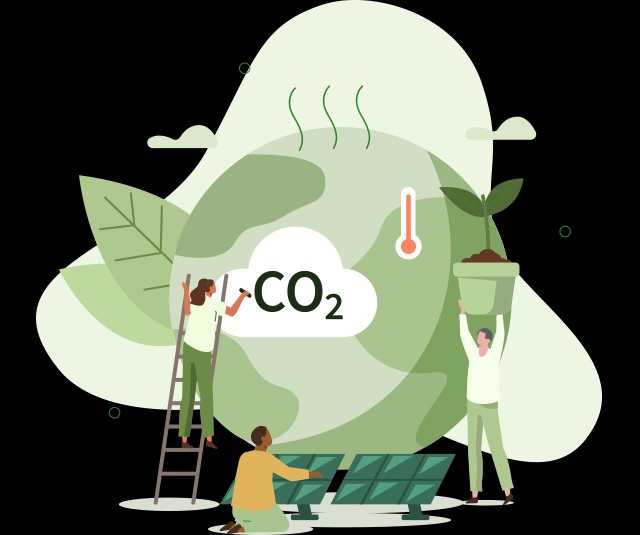The world is experiencing climate change at a rapid rate. In response to this challenge, companies are taking action to reduce emissions and improve their carbon footprints. A carbon management program can help achieve those goals by identifying ways to reduce carbon emissions and then implement changes that result in lower emissions over time. But why would a company want to do this? The answer comes down to the fact that addressing climate change is good business—and not just because it saves money on energy costs.
Climate change is wreaking havoc on the environment
It’s no secret that the environment has been experiencing increasingly severe weather, rising sea levels, and biodiversity loss. This will only get worse as humans continue to emit greenhouse gases into the atmosphere at an alarming rate.
As a result of climate change and its effects on the environment, many businesses are beginning to feel its impact on their day-to-day operations. Some examples of these effects include:
- Increased difficulty accessing freshwater resources (due in part to scarcity) makes it more expensive for companies like Coca-Cola or Nestle to produce their products
- Rising temperatures lead to reduced productivity in factory workers who must work outside all day
- Hurricanes such as Ian and Sandy have resulted in billions of dollars worth of damage due to property damage, cleanup efforts, and lost revenue
Companies are taking action
As the effects of climate change begin to take a toll on businesses, companies are taking action. They realize that business as usual won’t cut it anymore; they need to get creative and adopt new strategies for sustainable growth.
One such strategy is carbon management programs (CMPs). A CMP is an initiative that involves employees working together toward environmental improvement through educational initiatives, energy reduction projects, and other means. The idea behind these programs is to teach employees how their actions affect the environment and equip them with the tools needed for making environmentally-friendly choices at work.
The benefits of adopting this strategy are twofold: For starters, CMPs can help improve your company’s image by showing customers that you’re committed to reducing its carbon footprint while also encouraging employees’ engagement in environmental issues. Secondly—and most importantly—it will help reduce your overall energy costs. That’s because if everyone participates in these programs throughout all departments within an organization (including top executives), then there will be less waste produced overall.
Carbon management programs can reduce a company’s carbon footprint
Carbon management programs can help companies reduce their carbon footprint, save money on energy costs and increase employee engagement and customer satisfaction. These benefits are not only important to the bottom line but also to employee productivity, health, and safety.
The implementation of these programs is similar in each industry: companies must first identify their carbon reduction goals through a benchmarking study that compares corporate emissions against other businesses in the same sector. Then they create an action plan for how those reductions will be made.
Carbon reporting fulfills stakeholder expectations
Carbon reporting helps companies achieve their goals by providing transparency on emissions and driving awareness of risks, opportunities, and challenges associated with climate change. It also guides how to identify effective strategies to reduce emissions in line with these risks.
This kind of information allows companies to make better decisions about how to manage their carbon footprint—and ultimately reduces costs associated with compliance requirements or penalties for non-compliance.
Conclusion
The bottom line is that carbon management programs are a great way for companies to reduce their carbon footprint, but they also benefit the environment and society at large. The more companies that take action to minimize their impact on the climate, the better off all will be.







